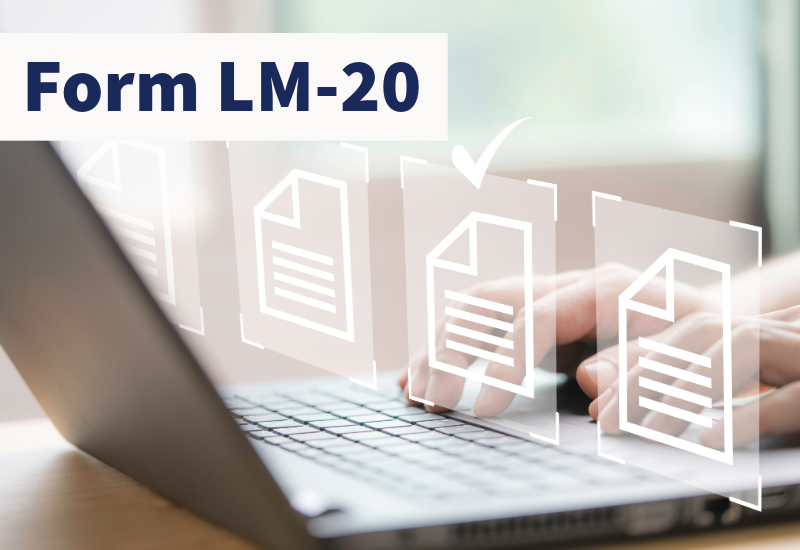Labor Relations Consultants: Fill Out Form LM-20 Correctly

In 1959, when Congress enacted the Labor-Management Reporting and Disclosure Act, it concluded that financial transparency was an important part of the labor-management relations world. Under the LMRDA, unions, employers, their respective officers and employees, and surety companies are all required to file reports containing certain financial information related to their respective activities. So, too, are labor relations consultants.
Congress included transparency requirements for labor relations consultants even though, as a general matter, their work for employers during union organizing campaigns might be lawful. As Congress said, consultants’ work “should be exposed to public view” because it is “disruptive of harmonious labor relations and fall[s] into a gray area,” and prompt disclosure of arrangements between them and employers serves the interest of telling employees that their employers were bringing in outside third parties to help persuade them to vote against union representation. Section 203(b) to the LMRDA requires consultants to file reports, now known as Form LM-20s, with the Department of Labor within 30 days after entering into an agreement or arrangement with an employer to provide the employer with various services surrounding union organizing activities.
In earlier blog posts I have described how the Office of Labor-Management Standards is focusing on the chronic underreporting by employers and labor relations consultants and how we are seeking to obtain more, and more timely, reports from labor relations consultants. Our efforts in increasing the number of reports filed have paid off – we’ve gone from 310 LM-20s filed in fiscal year 2020 to 761 in 2023.
But filing an LM-20 report is one thing; filing a timely and correct report is another – and employees who are the targets of consultant activities deserve both. So OLMS released a fact sheet for consultants identifying common errors we have found in reviewing these reports. For example:
- Waiting until after an NLRB election to file an LM-20 rather than filing within 30 days of entering into the agreement or arrangement, whether verbal or written.
- Failing to attach any written agreement to the form and/or failing to describe in detail the specific activities the consultant has agreed to perform as well as the object of those activities. If the true object of the agreement or arrangement is to persuade employees not to support or vote for a union, it is not adequate to describe its purpose simply as “educating” employees about their rights.
- Failing to include the full names and addresses of the specific people who are carrying out the work under the agreement or arrangement.
All of the errors described in the fact sheet are on subjects that have been clear for many years and correcting them is long overdue. We are distributing our fact sheet widely and are hopeful that it will lead to more timely and accurate LM-20 reports so OLMS can advance all the important policies underlying the LMRDA.
Jeffrey Freund is the director of the Department of Labor’s Office of Labor-Management Standards.
Koebel.Tiffany…
Mon, 03/04/2024 – 17:03


Comments are closed.